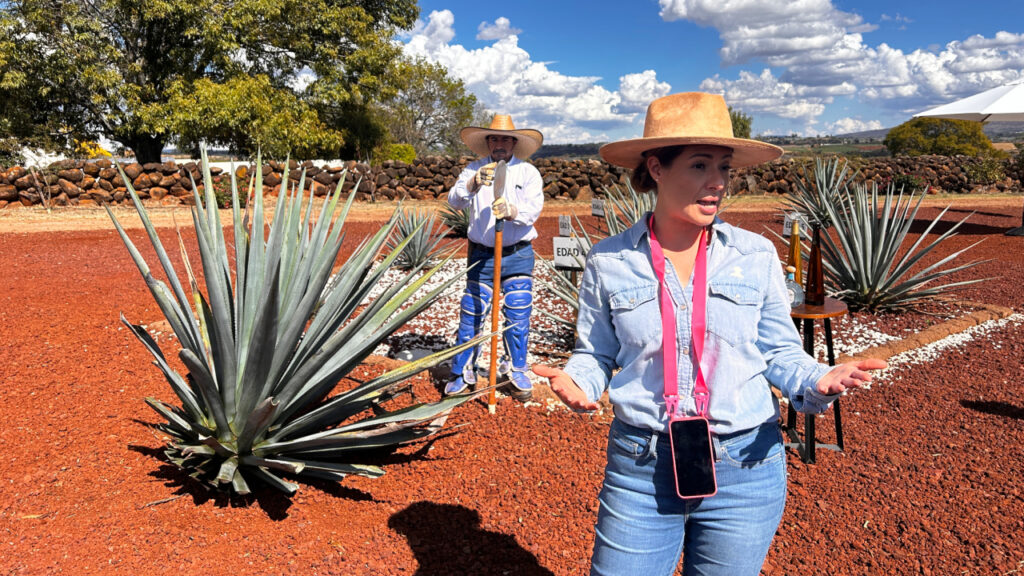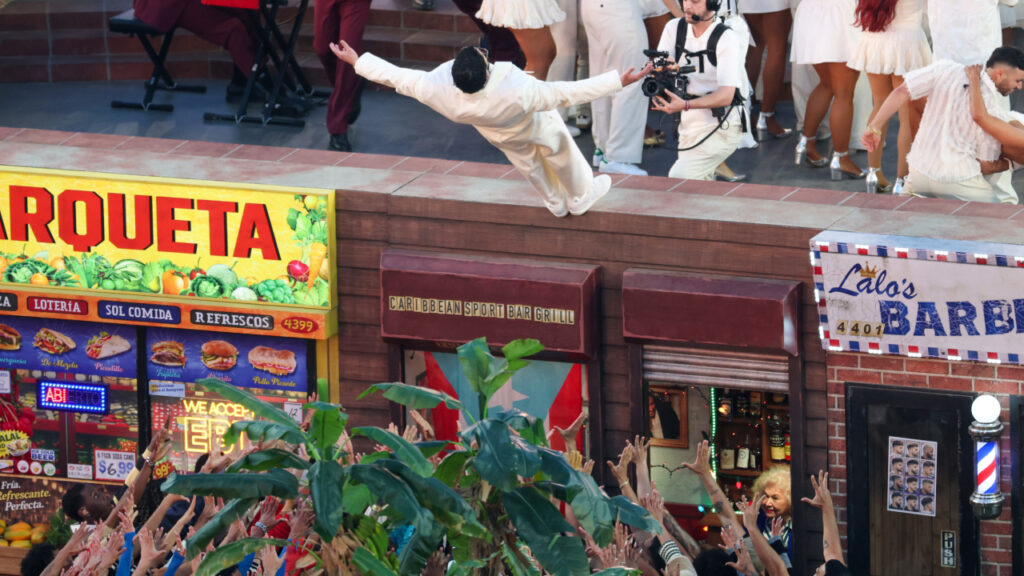
Meet the Latina Powerhouses Behind LA’s Rising DIY Literary Movement
Los Angeles is a city we immediately associate with movies. When thinking of cities with a literary history, it might not be one of the first to come to mind. However, beneath the shadow of the Hollywood sign, writers are forming vibrant communities in the DIY tradition.
And, of course, two of the authors and community organizers spearheading this change are Latinas—Sofia Aguilar, who is Chicana, and Paula Macena, who is of Brazilian heritage.
“When I was in high school and thinking about college, I convinced myself that the only writing scene worth participating in was the one in New York,” Aguilar told FIERCE. “And while it’s true that the writing scene on the East Coast is strong, I have never felt more tied to the writers of LA [as I have] over the past few years. Through social media, I’ve had the pleasure of meeting, speaking with, and even collaborating with so many amazing and talented writers in LA across genres, ages, and identities at open mics, book festivals, readings, and more.”
Two Latinas and the Literary Scene in LA
For Sofía Aguilar and Paula Macena, Los Angeles has become fertile ground for community work. Aguilar, for example, hosts informational events related to freelance and creative writing. Meanwhile, Macena runs a literary reading series titled “Pluto’s.” The two Latinas often coincide and work together, evidence of the LA literary sphere’s collaborative rather than competitive spirit.
“A big strength is its inclusivity and representation of marginalized writers, giving a platform to voices who haven’t had the space for one in the traditional publishing world,” Macena shared.
As a fellow Latina writer in their orbit, I’ve long admired their ability to bring people together. So, I reached out to hear their stories of innovation and determination.
Macena’s Early Inspirations: From Barbie Dolls to Fanfiction
Growing up, Macena didn’t just play with Barbies—she took creative inspiration from them. One of the first works she remembers writing is a song about Barbie Dolls. In middle school, she continued workshopping stories with existing characters—by developing a passion for fanfiction.
In addition to helping her cultivate her skills, she realized that she felt strongly about writing as a vehicle for social connection. “It was the first writers’ community I became a part of, and I kept searching for that kind of community,” she said.
About ten years later, Macena built that community for herself by founding Pluto’s. The first event she hosted was intended to be a one-off book launch. However, when she realized how much fun it was to organize a lineup and mingle with other creatives, she asked herself, “What if I just keep doing this?”
“And Pluto’s was born,” she said. “Its main mission is to introduce poetry to those typically unfamiliar with it in an environment that’s engaging, entertaining, and most importantly safe and welcoming.” She also aims to shift the perception of writing as a solitary profession, allowing attendees to connect with those who share their love of the written word.
The Importance of Creative Spaces
Since its inception, Pluto’s has started publishing a zine that posts open calls for writing and visual art. They’ve also branched out into a different type of event: the writer’s retreat.
“There are so many writers’ workshops, retreats, and events in Los Angeles, which is incredible! But the majority of them are in an inaccessible price range to the average person,” Macena elaborated. “I’ve had to intentionally save money from minimum wage jobs to be able to attend even just a 2-hour workshop that costs $60. The main thing I emphasized with this retreat was affordability. I wanted it to be a safe space packed full of resources and community for local writers, with no intimidation or gatekeeping.”
In the future, Macena hopes to plan more of these retreats. She also wants to participate in local markets and curate book launches for authors. “The DIY scene is so crucial to creatives, and I think it’s important that we continue to find and grow these spaces organically.”
Aguilar’s Literary Journey: From Bedtime Stories to Cisneros’ Influence
Much like Macena, Aguilar developed a love for literature at an early age. She lost herself in the bedtime stories her parents read to her and fashioned makeshift books growing up. Yet, it wasn’t until reading Sandra Cisneros’ “The House on Mango Street” that she realized she wanted to pursue writing as a career.
Courses from WriteGirl, a local nonprofit that provides workshops and mentorship, helped her find her voice. Not only did she go on to pen multiple chapbooks and a children’s book describing Queer heroes from Latin America—she became a volunteer and then a staff member for the organization.
Since then, she’s hosted workshops independently. “I’m always incorporating pieces of their philosophy and strategy into my own work: providing free journals and pens, inviting play and experimentation into the space, emphasizing process rather than perfection or polished pieces, providing helpful feedback that celebrates rather than ignores what has been accomplished,” she said.
However, It’s Not Just Fiction and Poetry That Have Aguilar’s Heart
She’s also a freelance journalist, regularly contributing articles about POC representation in pop culture to diverse outlets. Although she has dozens of headlines to her name, she remembers what it was like to be less experienced.
Thus, she’s planning a conference at Junior High to empower other journalists. “I started working right after graduating with my bachelor’s degree in 2021. And as much as I’ve enjoyed it and even adapted to certain expectations, I felt wholly unprepared [back then].” At that time, concepts like drafting an invoice and writing interview questions were still perplexing to her.
“Unfortunately, that inexperience can work against you in this industry, especially if you’re BIPOC because you’re already up against systemic barriers.” Co-hosted by Latina Media Co. and featuring workshops, guided writing sessions, a panel, and even a round of mock interviews, the event will arm fledgling journos with the resources—and the community—they need to succeed.
On Top of Her Advocacy for Writers, Aguilar Feels Strongly About Making Books More Accessible
Her most recent initiative? Building a Little Free Library to ensure that anyone who wants it has a rotating selection of reading material.
“I’ve been obsessed with these little houses of books for years because they represent what I’m most passionate about: free and open access to books, information equity, and the role that social justice plays in reading and literacy,” she expressed. “At the same time, I noticed that these libraries were and still are overwhelmingly present in wealthy, upper-class, white-majority communities, and that didn’t sit right with me.”
The project was a group effort. Aguilar’s aunt allowed her to build the library outside her house for maximum outreach because she lived on a busy street, while her partner designed and constructed the library from scratch. The structure is immediately welcoming, its soft blue walls patterned with paintings of flowers and bees.
Aguilar’s dedication to the cause has influenced her career path: she’s pursuing an M.S. in Library Science at Syracuse University. “Working in a library, I can have an impact on what books are chosen for our collection, what books are on display each month, and even what people choose to check out if they seek recommendations from me,” she noted.
Getting to be surrounded by books at work while promoting literacy one-on-one—sounds like a pretty sweet deal.
When It Comes to Their Own Work, Aguilar and Macena Constantly Find Themselves Exploring Their Latinidad on the Page
How could they not? Their heritage is one of the many lenses through which they see the world.
Aguilar confessed she typically writes about Latinas who “struggle with how their identity both empowers and hinders them as they move through the world.” She’s especially interested in delving into familial and intergenerational relationships between Latinas—”mother to daughter, sister to sister, granddaughter to grandmother.”
Crucially, she’s vocal about the fact that Latina stories don’t have to fit a particular mold in order to be legitimate: “I never want to be limited by the industry’s expectations for me to write the same kind of book over and over again.”
For her part, Macena emphasized that much of her work is about “being a second-gen immigrant growing up in the United States.” She also noted that her culture has influenced her approach to event planning: “Since Brazilians are extremely community-oriented, it’s definitely influenced my love for community and the way I’ve integrated it into my career and creative practice.”
However, Aguilar and Macena Have Faced Their Share of Obstacles in The Literary World
Macena recalls being exposed primarily to white writers and characters growing up, while Aguilar has faced a variety of microaggressions, from being scrutinized for speaking or writing in Spanish to having her name mispronounced.
Still, they remain resilient.
“I hope I can help other writers advocate and fight for themselves when they need to, and that they have the knowledge and wherewithal to speak up when something isn’t right,” Aguilar stated. “Unfortunately, the publishing industry continues to gatekeep marginalized writers, especially if they’re BIPOC, low-income, working-class, queer, or disabled. It’s up to us to show that we’re not going anywhere. That we’ll, in fact, create spaces of our own where we feel safe, valued, and celebrated.”
Macena, too, believes that there is hope—as long as we’re intent on creating the change we wish to see in the writing world. “When you go to a show, talk to people. Find out where there’s something else going on, and just keep showing up,” she said. “Your work does not have to be perfect; you just have to be present.”




